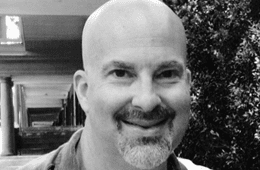Jesus did not make disciples.
Do I have your attention yet?
Okay, good! To clarify ‒ Jesus made disciple-makers.
Our view of discipleship is skewed. For this reason, the church is not developing leaders because it is not creating disciple-makers. We need to reverse the course.
Jesus cultivated worldly and sinful men into bold, resilient, and daring leaders. Jesus reversed the course of their lives. The apostles were intended to reciprocally train others, to obey the commands of Christ (Matthew 28:19–20). While there is much discussion about the actual “commands” ‒ I think we can all agree that love is a major command (John 13:34).
When we love others, we become invested in their lives. We earnestly desire to see them grow ‒ spiritually, emotionally and in maturity. The problem, according to the Barna Group, “Only 20 percent of Christian adults are involved in some sort of discipleship activity.” [1]
We’re clearly not loving others as ourselves ‒ it seems the church is “every man for himself.” With 80 percent unengaged ‒ reversing the course will be a slow, methodical and intentional process ‒ but it can happen.
How did we get here?
For the record, I wouldn’t blame the current church ‒ this is the fault of previous generations, and the generations before them, and so on. Without delving in too deeply, the errors of disciple-making transformed over the millennia. The most observed shifts were due to correcting heresies and over infant baptism. [2] We shouldn’t view the shifts as blunders, but more about contextual cultural changes ‒ it is what it is.
Historically, discipleship observed the gathering of believers to study in the teachings of Christ in the midst of intentional daily living. The early church’s approach to communal catechesis might seem to correlate with modern Sunday school, but “we sometimes treat disciple making like a program or a class.” [3]
As well, curriculums which are designed to systematically guide believers through a discipleship course often convey a false sense of discipleship. When discipleship exists in a ministry “program,” the believer may fail to comprehend the call to follow Jesus in everyday life.
Basically, the believer begins to view discipleship as a course to complete. However, what happens to believers who do not attend discipleship class? Are they not a disciple-maker? Can you see what has happened? Disciple-making has been reduced to programs and curriculums.
The solution
When Jesus states, “Follow Me, … and I will make you fishers of men” (Matthew 4:19), Jesus required a faithful journey into a deeper discipling relationship. [4] Jesus led the disciples on mission (Mark 1:38), and He also sent them out on mission (Matthew 10:5) ‒ both encapsulated an interactive spiritual praxis.
Jesus’ disciples did not rely on a programmed curriculum ‒ they engaged in a variety of methods for discipleship. [5] As Bill Hull states, “Discipleship is not a program we launch, it is a lifestyle we embrace.” [6]
Today, when a believer hears the word, “discipleship,” the thought of Sunday school or a curriculum is envisioned ‒ perhaps even a Bible study. These are all good for the believer’s spiritual growth and maturity. However, discipleship is about intentionally living the Christ-life together.
Discipleship is triangular ‒ it has vertical, horizontal, and diagonal relationships. We learn from the Godhead ‒ vertically. We grow with the collective church ‒ horizontally. And we teach and reach others by walking with them in daily life ‒ diagonally.
To reverse the course, disciple-making is investing in intentional relationships with others. We achieve this by gathering, meeting, and asking probing questions ‒ centered within the life of Christ. When we share the Christ-life together ‒ scars, sins, and all ‒ we love one another as Christ commanded.
This article originally appeared here.
Notes:
[1] David Kinnaman, “New Research On the State of Discipleship,” Barna Group, https://www.barna.org/research/leaders-pastors/research-release/new-research-state-of- discipleship#. VqDcJFJQmDU.
[2] Matthew Fretwell, “Developing A Reproducible Disciple-Making Training Strategy for the Church Planters of New Breed Network” (Southeastern Baptist Theological Seminary, 2017).
[3] Craig Ott and Gene Wilson, Global Church Planting: Biblical Principles and Best Practices for Multiplication (Grand Rapids, MI: Baker Academic, 2011), 229.
[4] Bill Hull, The Complete Book of Discipleship: On Being and Making Followers of Christ (Colorado Springs, CO: NavPress, 2006), 36.
[5] Jim Putman and Bobby Harrington, Discipleshift: Five Steps to Make Disciples Who Make Disciples (Grand Rapids, MI: Zondervan, 2013), 117.
[6] Bill Hull, Conversion & Discipleship (Grand Rapids, MI: Zondervan, 2016), 55.


 Matthew Fretwell
Matthew Fretwell
